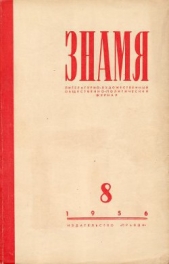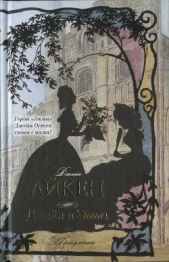Маленький Темби.

Маленький Темби. читать книгу онлайн
Рассказ о непростых взаимоотношениях фермеров-англичан и южноафриканцев.
Внимание! Книга может содержать контент только для совершеннолетних. Для несовершеннолетних чтение данного контента СТРОГО ЗАПРЕЩЕНО! Если в книге присутствует наличие пропаганды ЛГБТ и другого, запрещенного контента - просьба написать на почту [email protected] для удаления материала
This went on for about two years. She said to Willie: 'Tembi seems to have got over that funny business of his. He's really useful in that garden. I don't have to tell him when to plant things. He knows as well as I do. And he goes round the huts in the compound with the vegetables, persuading the natives to eat them. 'I bet he makes a bit on the side, said Willie, chuckling. 'Oh no, Willie, I'm sure he wouldn't do that.
And, in fact, he didn't. Tembi regarded himself as an apostle of the white man's way of life. He would say earnestly, displaying the baskets of carefully arranged vegetables to the native women: 'The Goodhearted One says it is right we should eat these things. She says eating them will save us from sickness. Tembi achieved more than Jane had done in years of propaganda.
He was nearly eleven when he began giving trouble again. Jane sent her two elder children to boarding-school, dismissed her nannies, and decided to engage a piccanin to help with the children's washing. She did not think of Tembi; but she engaged Tembi's younger brother.
Tembi presented himself at the back door, as of old, his eyes flashing, his body held fine and taut, to protest. 'Missus, missus, you promised I should work for you. 'But Tembi, you are working for me, with the Vegetables. 'Missus, my missus, you said when you took a piccanin for the house, that piccanin would be me. But Jane did not give way. She still felt as if Tembi were on probation. And the demanding, insistent, impatient thing in Tembi did not seem to her a good quality to be near her children. Besides, she liked Tembi's little brother, who was a softer, smiling, chubby Tembi, playing good- naturedly with the children in the garden when he had finished the washing and ironing. She saw no reason to change, and said so.
Tembi sulked. He no longer took baskets of green stuff from door to door in the compound. And he did as little work as he need without actually neglecting it. The spirit had gone out of him.
'You know, said Jane half indignantly, half amused, to Willie: 'Tembi behaves as if he had some sort of claim on us.
Quite soon, Tembi came to Willie and asked to be allowed to buy a bicycle. He was then earning ten shillings a month, and the rule was that no native earning less than fifteen shillings could buy a bicycle. A fifteen-shilling native would keep five shillings of his wages, give ten to Willie, and undertake to remain on the farm till the debt was paid. That might take two years, or even longer. 'No, said Willie. 'And what does a piccanin like you want with a bicycle? A bicycle is for big men.
Next day, their eldest child's bicycle vanished from the house, and was found in the compound leaning against Tembi's hut. Tembi had not even troubled to conceal the theft; and when he was called for an interview kept silent. At last he said: 'I don't know why I stole it. I don't know. And he ran off, crying, into the trees.
'He must go, said Willie finally, baffled and angry.
'But his father and mother and the family live in our compound, protested Jane.
'I'm not having a thief on the farm, said Willie. But getting rid of Tembi was more than dismissing a thief: it was pushing aside a problem that the McClusters were not equipped to handle. Suddenly Jane knew that when she no longer saw Tembi's burning, pleading eyes, it would be a relief; though she said guiltily: 'Well, I suppose he can find work on one of the farms nearby.
Tembi did not allow himself to be sacked so easily. When Willie told him he burst into passionate tears, like a very small child. Then he ran round the house and banged his fists on the kitchen door till Jane came out. 'Missus, my missus, don't let the baas send me away. 'But Tembi, you must go, if the boss says so. i work for you, missus, I'm your boy, let me stay. I'll work for you in the garden and I won't ask for any more money. 'I'm sorry, Tembi, said Jane. Tembi gazed at her while his face hollowed into incredulous misery: he had not believed she would not take his part. At this moment his little brother came round the corner of the house carrying Jane's youngest child, and Tembi flew across and flung himself on them, so that the little black child staggered back, clutching the white infant to himself with difficulty. Jane flew to rescue her baby, and then pulled Tembi off his brother, who was bitten and scratched all over his face and arms.
'That finishes it, she said coldly. 'You will be off this farm in an hour, or the police will chase you off.
They asked Tembi's father, later, if the lad had found work; the reply was that he was garden boy on a neighbouring farm. When the McClusters saw these neighbours they asked after Tembi, but the reply was vague: on this new farm Tembi was just another labourer without a history.
Later still, Tembi's father said there had been 'trouble', and that Tembi had moved to another farm, many miles away. Then, no one seemed to know where he was; it was said he had joined a gang of boys moving south to Johannesburg for work in the gold mines.
The McClusters forgot Tembi. They were pleased to be able to forget him. They thought of themselves as good masters; they had a good name with their labourers for kindness and fair dealing; while the affair of Tembi left something hard and unassimilable in them, like a grain of sand in a mouthful of food. The name 'Tembi' brought uncomfortable emotions with it; and there was no reason why it should, according to their ideas of right and wrong. So at last they did not even remember to ask Tembi's father what had become of him: he had become another of those natives who vanish from one's life after seeming to be such an intimate part of it.
It was about four years later that the robberies began again. The McClusters' house was the first to be rifled. Someone climbed in one night and took the following articles: Willie's big winter coat, his stick, two old dresses belonging to Jane, a quantity of children's clothing and an old and battered child's tricycle. Money left lying in a drawer was untouched. 'What extraordinary things to take, marvelled the McClusters. For except for Willie's coat, there was nothing of value. The theft was reported to the police, and a routine visit was made to the compound. It was established that the thief must be someone who knew the house, for the dogs had not barked at him; and that it was not an experienced thief, who would certainly have taken money and jewellery.
Because of this, the first theft was not connected with the second, which took place at a neighbouring farmhouse. There, money and watches and a gun were stolen. And there were more thefts in the district of the same kind. The police decided it must be a gang of thieves, not the ordinary pilferer, for the robberies were so clever and it seemed as if several people had planned them. Watchdogs were poisoned; times were chosen when servants were out of the house; and on two occasions someone had entered through bars so closely set together that no one but a child could have forced his way through.
The district gossiped about the robberies; and because of them, the anger lying dormant between white and black, always ready to flare up, deepened in an ugly way. There was hatred in the white people's voices when they addressed their servants, that futile anger, for even if their personal servants were giving information to the thieves, what could be done about it? The most trusted servant could turn out to be a thief. During these months when the unknown gang terrorized the district, unpleasant things happened; people were fined more often for beating their natives; a greater number of labourers than usual ran away over the border to Portuguese territory; the dangerous, simmering anger was like heat growing in the air. Even Jane found herself saying one day: 'Why do we do it? Look how I spend my time nursing and helping these natives! What thanks do I get? They aren't grateful for anything we do for them. This question of gratitude was in every white person's mind during that time.


























